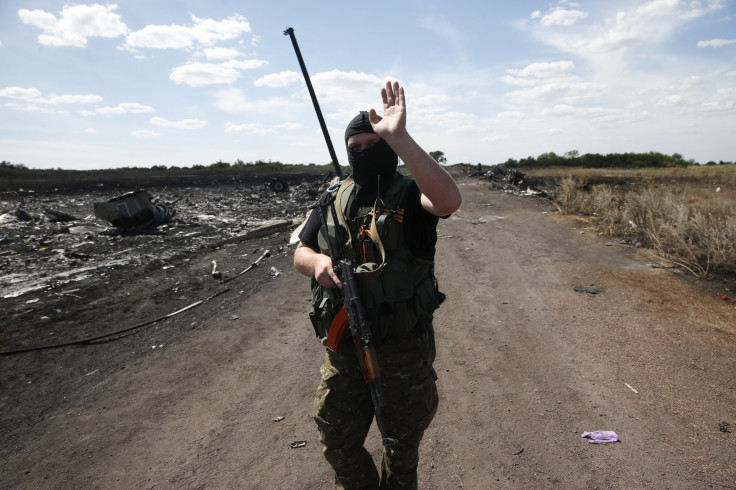Anton Skiba, CNN Fixer Abducted By Pro-Russian Separatists After Reporting On MH17

A freelance journalist working for CNN was reportedly abducted by pro-Russian separatists in the eastern Ukrainian city of Donetsk on Tuesday and has been out of contact since.
Anton Skiba, a native Ukrainian journalist was working with a CNN team as a “fixer,” or a local with knowledge of the region who works as a journalist, arranges stories and translates for foreign journalists. He was abducted on the first day of his work for CNN.
Journalist working for CNN abducted in separatist-controlled region of Ukraine. http://t.co/6R44b8URuZ pic.twitter.com/bg1sagpU4Q
- CNN International (@cnni) July 24, 2014The U.S. Ambassador to Ukraine, Geoffrey Pyatt, condemned Anton's detention, along with that of a number of other journalists in the Donetsk region.
The team was returning to their Donetsk hotel after reporting at Malaysia Airlines Flight MH17’s crash site when officials from the Donetsk People’s Republic (DNR) stopped them and detained Skiba. The official in charge, Alexandr Kalyussky accused Skiba of posting rewards for the death of DNR officials or combatants on his Facebook page, but later told CNN that he arrested Skiba for carrying identifications with differing personal information. Skiba reportedly did not resist his arrest.
CNN says Skiba worked in a similar capacity for the BBC in the days following MH17’s crash and did photography work for a Moscow-based news magazine.
Fixers are often found in dangerous situations due to the nature of their work. Since they are locals, they do not enjoy the de facto international protection that foreign journalists get. Depending on the reports, government forces or local militia may see them as traitors to their countries or dangerous to their rule. For this reason, many go uncredited in media reports.
Climate of fear and intimidation of journalists must stop in Donetsk, #Ukraine: http://t.co/cwNbbJqQAO
— Geoffrey Pyatt (@GeoffPyatt) July 24, 2014Igor Strelkov, the Russian-born leader of the DPR’s armed wing issued a decree on Monday barring journalists from reporting near “combat zones or near military installations,” during DNR military operations. Strelkov cited the need “to ensure personal safety for media workers, and due to the need for guaranteeing informational security for DPR’s armed forces.”
The Committee to Protect Journalists says at least 10 journalists have been detained for at least a short time by separatist forces since MH17 was shot down last Thursday, but Reporters Without Borders says that number is higher.
Two Russian journalists stationed near pro-Russian separatist troops have also been missing since an intense battle at the Donetsk airport. Separatists accuse the Ukrainian government of abducting one of them.
For a more comprehensive list of arrests in recent days, see the Organization for Security and Co-operation in Europe.
© Copyright IBTimes 2024. All rights reserved.












